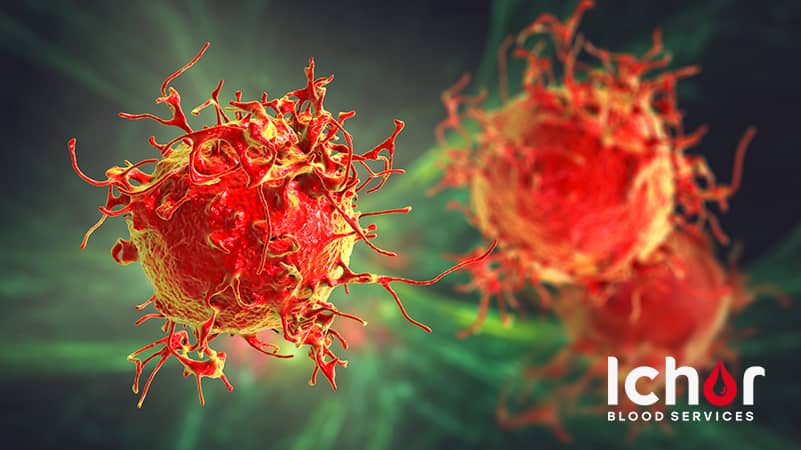
Long COVID, long haulers, post-acute sequelae of SARS-CoV2 (PASC), or post-COVID syndrome. Although it goes by many names, this continuation of illness related to and born from COVID-19 afflicts an estimated 10% to 20% of people who previously had COVID. Long COVID refers to continuing illness in people who have new or lingering symptoms of COVID 3 months after infection. For some, the symptoms are mild, for others, severe. Those suffering from long COVID may have had a confirmed COVID case, but if a person was infected with COVID at the start of the pandemic, they may not have known for sure, as tests were either not yet developed or were not available for the general public. These same people would not test positive for COVID later, as antibodies can no longer be detected after a few months. With advances in COVID research, there has been a development of a T cell COVID test that informs people if they have ever had COVID, no matter how long ago. This testing is vital for those who suspect they are suffering from long COVID.
What To Know About Long COVID
Long COVID Treatment
This illness can be difficult to pinpoint since multiple symptoms have the potential to be linked to other illnesses. Another problem is that researchers haven’t been able to do many studies on long COVID, as the illness has only been around for 2 years. We don’t yet know how long the impact of COVID will affect the body, what the future repercussions are, or how to fully treat it. Doctors are looking at the information they have on other infectious diseases that have long-term effects, such as Ebola, to try to predict how this long COVID will function. While research continues to develop and be made public, those who are suffering from long COVID are encouraged to discuss with their doctors about symptom management as well as joining long COVID support groups. Doctors also encourage multidisciplinary care, as long-term illness can lead to increased anxiety, fatigue, and depression that should be discussed with a mental health professional.
Signs And Symptoms
Long COVID can have a variety of signs and symptoms, as it affects different parts of the body. This makes it difficult for doctors to give a definitive diagnosis based on the symptoms you present, although there are some more common symptoms. You may have long COVID if you have had these symptoms since initial COVID infection:
- Fatigue
- Difficulty sleeping
- Altered mood
- Shortness of breath
- Cough
- Chest pain
- Pounding heart
- Rapid heartbeat
- Dizziness after standing
- Brain Fog
- Headaches
- Pins and needles
- Altered smell or taste
- Diarrhea
- Abdominal pain
While these are the reportedly most common symptoms, COVID can affect nearly every part of the body, with patients reporting nearly 200 different symptoms. With such a wide variety of symptoms, COVID testing should be done to help determine if it is the cause of your symptoms.
Testing For Long COVID
While diagnosing long COVID from the presentation of symptoms may be difficult, there is COVID testing available that can determine if you were previously infected with COVID and if that could be a cause for your symptoms. With COVID T cell testing, it can be determined if a person has ever been infected with COVID, even at the beginning of the pandemic. T cells are a type of white blood cell that develops in the bone marrow. They attach themselves to the virus and attract other immune cells to the area. T cells are integral to long-term COVID-19 testing, as T cells remain active for a long time after infection. This information is helpful to those who suspect they have long COVID as getting confirmation of initial infection can help lead to a diagnosis and to the correct medical treatments both now and going forward. While long COVID is still being studied, more research will continue to come out, and knowing you carry the long-term symptoms of COVID can help you handle your disease as well as take part in studies and surveys that assist with research and create a better understanding of both COVID and long COVID.
Ichor Health Offers COVID T Cell Testing In Canada
T-Detect™ T cell COVID-19 testing is available at Ichor Health in Canada. If you suspect you have long COVID, or if you suspect that you had COVID but were never tested for it, you should schedule a T cell COVID-19 test. Because the long-term effects of this illness are still being studied, it is beneficial for everyone to know if they had COVID and what that may mean for them in the future. Ichor Health wants to ensure that Canadians are aware of their medical conditions and have all of the resources and knowledge available to take control of their health. To get your COVID T cell test, choose a city we serve and book your test today! Ichor Health offers testing in Calgary, AB, Edmonton, AB, Medicine Hat, AB, Red Deer, AB, Fort McMurray, AB, Fredericton, NB, Vaughan, ON, and Toronto, ON. To learn more about T-Detect™ COVID-19 testing, read the patient brochure. For any other questions, either fill out the contact form or call 1 (855)286-8482.
FAQ
Q: Do long COVID symptoms always continue from the time a person gets COVID?
A: No, long COVID symptoms may present at any time after infection. You may not remain sick after your initial COVID infection, but symptoms may appear at a later date.
Q: How effective is memory T cell testing?
A: T-Detect™ COVID-19 testing is 99% effective in determining if a person has or has not had the COVID-19 disease.
Q: What other COVID-19 testing does Ichor offer?
A: Ichor Health offers:
- Active COVID-19 PCR swab testing
- Active COVID-19 saliva testing
- COVID-19 antibody serology testing
- COVID-19 corporate testing
- COVID-19 travel testing
- COVID-19 rapid testing